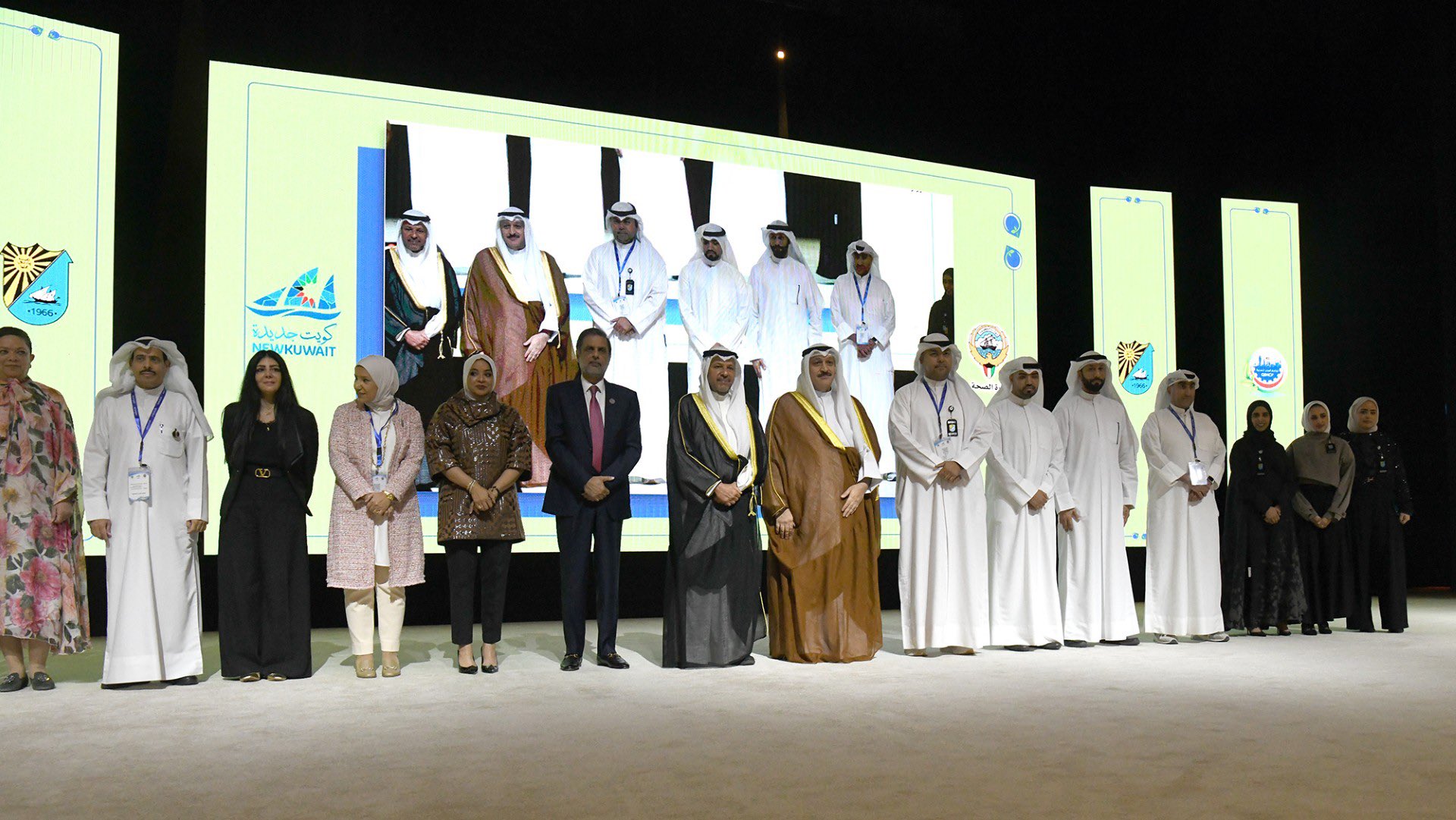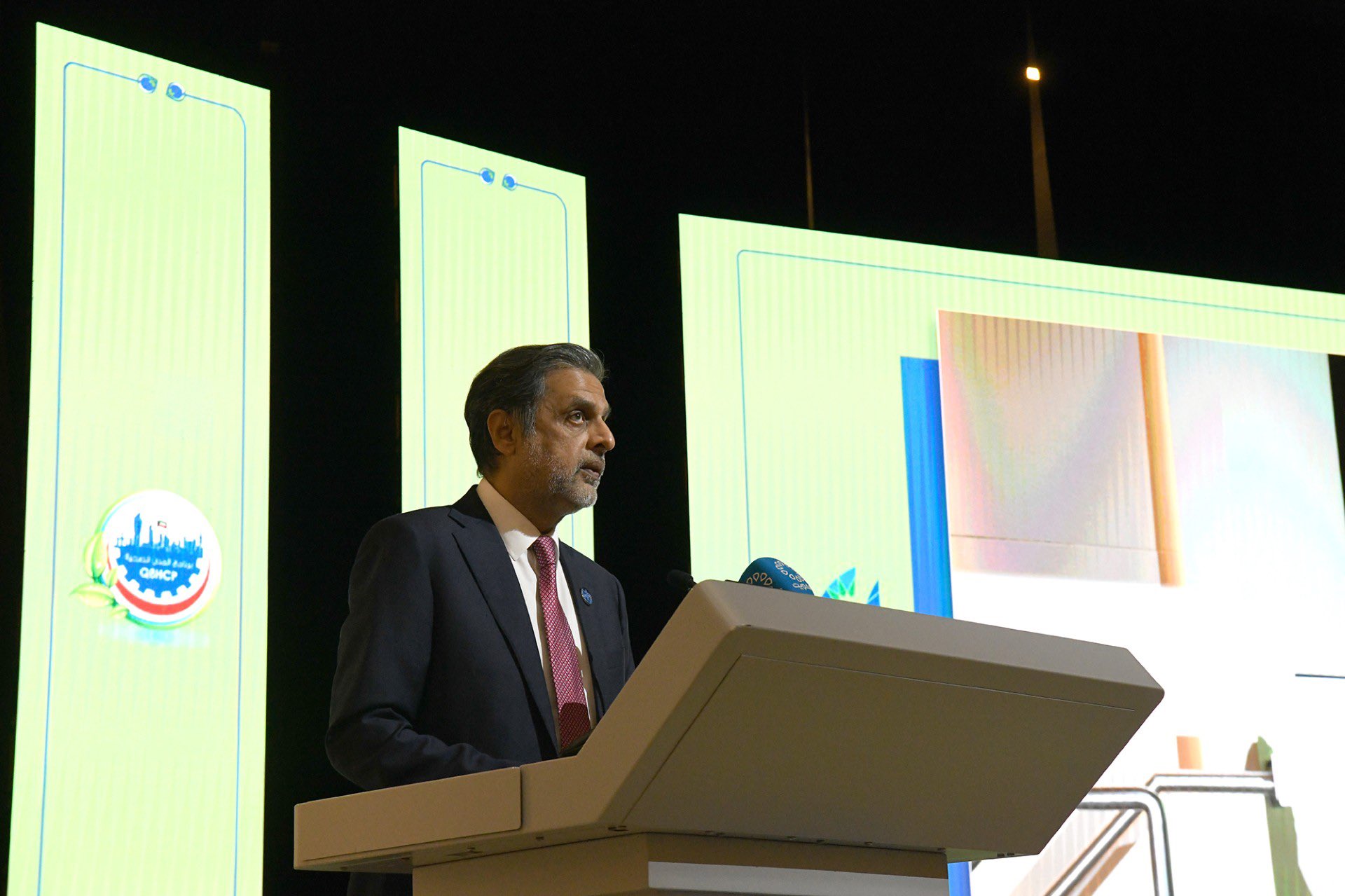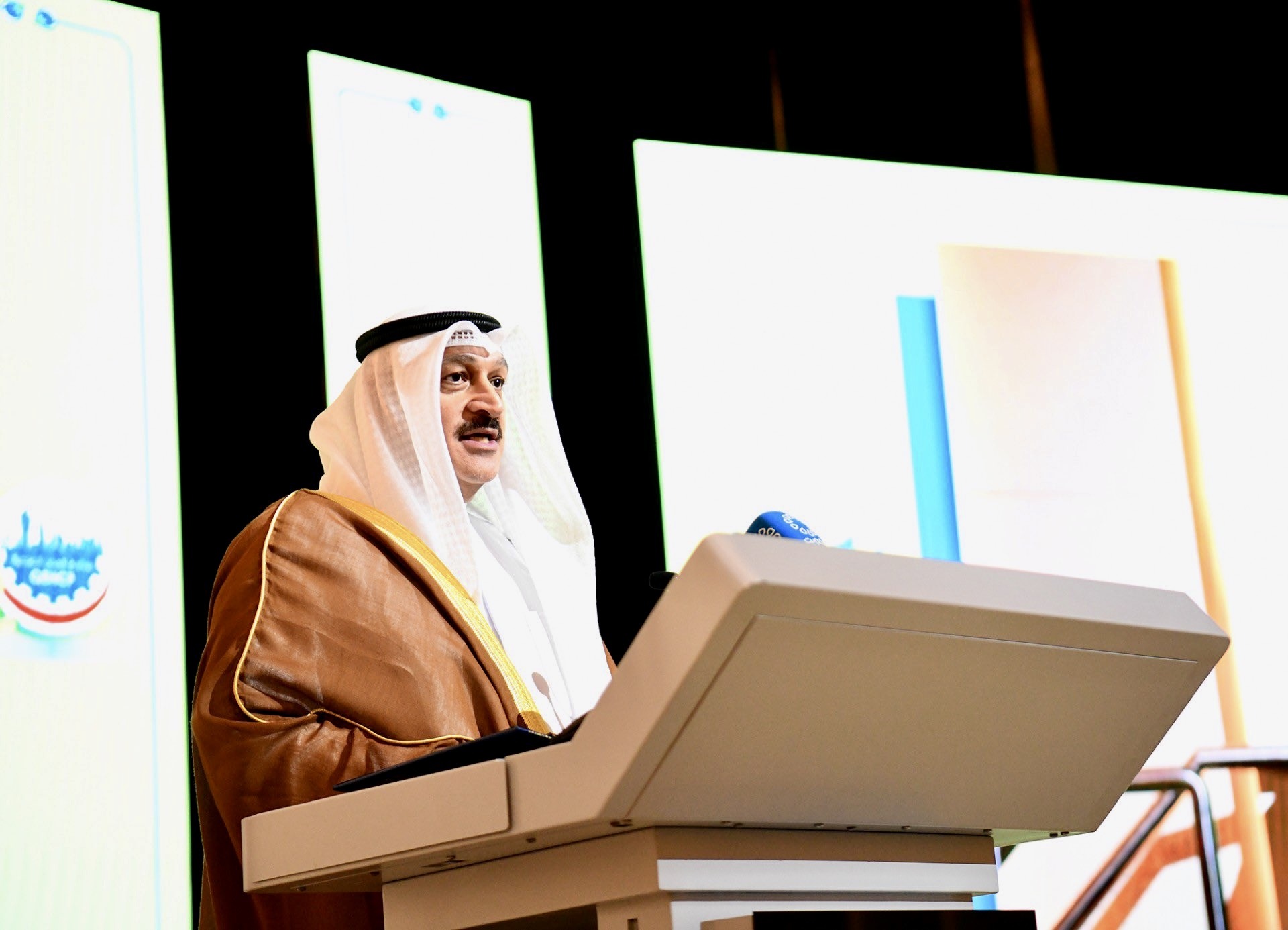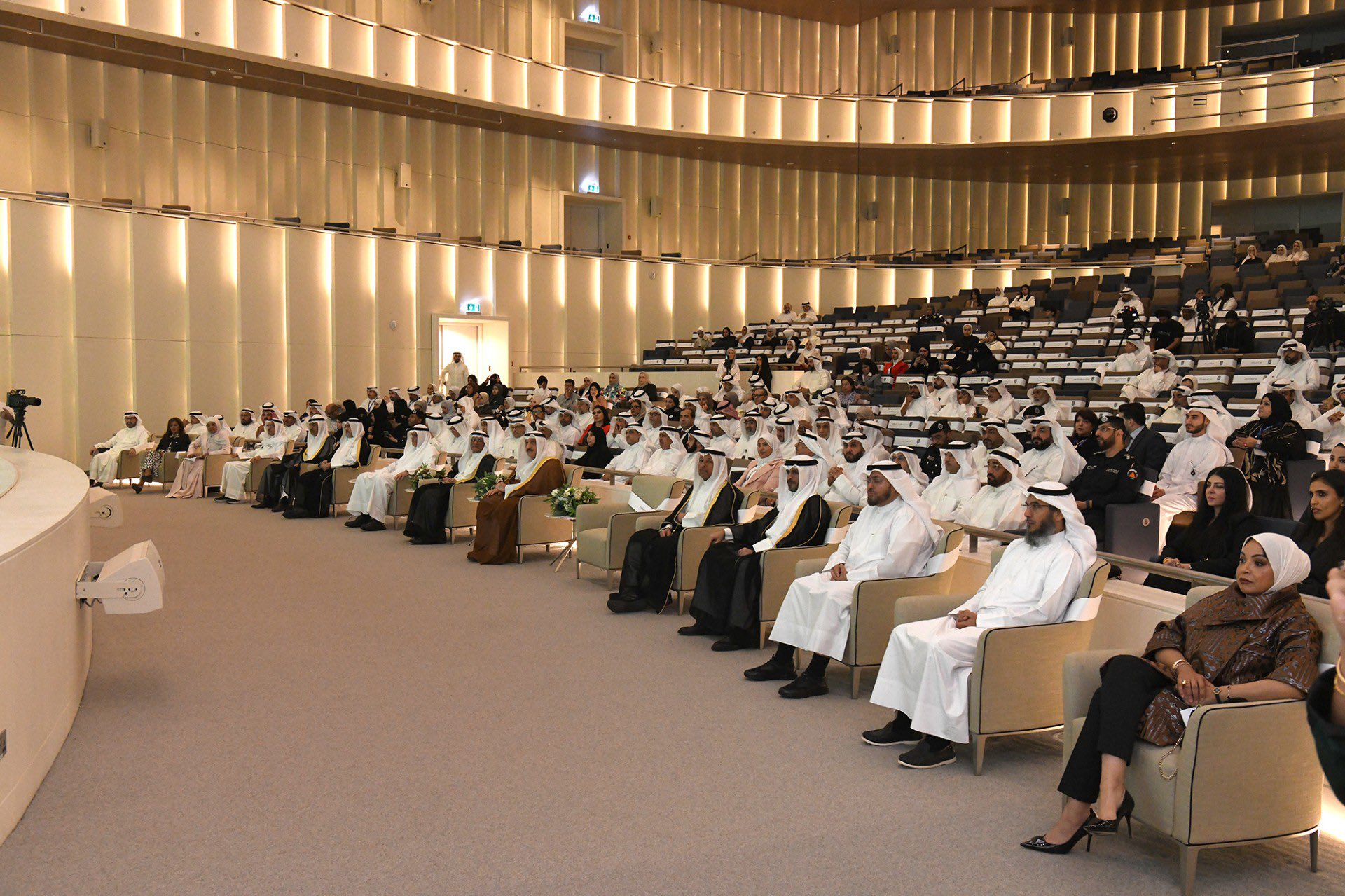Sabah Al-Salem University City earns prestigious WHO ‘healthy city’ status
The university integrates health into its daily operations, which enhances its institutional success, improves the health of students, employees and workers and enhances the environmental, social and economic sustainability of society.

• Dr. Nader Al-Jalal, Minister of Higher Education and Scientific Research, praised the university’s efforts in embracing the Healthy Cities Initiative, which led to this significant ‘achievement’ and emphasized that health and education are fundamental pillars for building a prosperous and sustainable society.
Dr. Nader Al-Jalal, Minister of Higher Education and Scientific Research, stated that the World Health Organization’s (WHO’s) recognition of Sabah Al-Salem University City as a ‘healthy city’ marks a historic achievement for Kuwait University, according to Al Rai newspaper.
This was stated in a speech delivered by Minister Al-Jalal during the ceremony to present the accreditation certificates for Sabah Al-Salem University City and the Dama and Al-Layoune areas as healthy cities.
The event was attended by Dr. Ahmed Al-Awadhi, Minister of Health, and Dr. Asad Hafeez, Regional Director of the World Health Organization (WHO).
During the celebration at Al Dana Hall in Sabah Al-Salem, Al-Jalal praised the university’s efforts in embracing the Healthy Cities Initiative, which led to this significant ‘achievement.’
He emphasized that health and education are fundamental pillars for building a prosperous and sustainable society.

Al-Jalal also highlighted the strong cooperation between state sectors to achieve common goals, particularly noting how Kuwait University has evolved from being solely an educational institution to a role model in promoting the overall health of its students and community.
Transforming educational institutions
He referred to the national vision aimed at transforming educational institutions into advanced centers that address the health and safety of society, stating, “We believe that young people are the pillar of the future, and that investing in their health is an investment in Kuwait’s prosperity and development.”
He expressed optimism about this ‘constructive initiative,’ which seeks to promote health awareness and reflects the spirit of teamwork, proper planning, and careful implementation of health and environmental initiatives.
He also highlighted the importance of activating the constructive partnership with the Ministry of Health, represented by the Office of Healthy Cities, and the WHO, to achieve the goals of Kuwait Vision 2035, which places people at the heart of the development process.
Comprehensive academic and health system
For his part, Dr. Osama Al-Saeed, Acting Rector of Kuwait University, stated that the university aimed to enhance the concept of community partnership, which led to Sabah Al-Salem University City receiving global accreditation as an integrated educational city with a comprehensive academic and health system.

Sabah Al-Salem University City accommodates about 50,000 students daily
He explained that the Sabah Al-Salem University City accommodates about 50,000 students daily, along with members of the academic and administrative bodies, and experiences the movement of around 50,000 cars from 7 a.m. to 4 p.m.
He added that the ‘University City’ earned 110 points required by the WHO to be recognized as a healthy city, and he appreciated the efforts of the Ministry of Health, individuals, and organizations involved in this initiative.
The ceremony included a visual presentation titled “Kuwait University: Facts and Figures,” highlighting the university’s efforts and preparations across various fields. In addition, an exhibition was held showcasing students presenting the cultures of their respective countries, with participation from around 30 entities both inside and outside the university.
Participants in the Healthy Cities Initiative were also honored for their contributions to this success.
Promoting health locally
Dr. Ahmed Al-Awadhi, the Minister of Health, stated that Kuwait University became the first university in the country to promote health locally, after Sabah Al-Salem University City received accreditation as a health city from the WHO.

He further explained that with the Dasma and Al-Layoun regions also receiving the WHO accreditation, Kuwait now has seven health cities out of 18 regions registered in the WHO regional network.
He added, “We aspire for the number of accredited cities in the State of Kuwait to reach ten regions by the end of the year, after the regions of Cordoba, Dia, and Al-Laayoune passed the initial assessment by the WHO,” praising the efforts of those responsible at Kuwait University and their dedication to the Health Cities Office at the Ministry of Health, which led to this “achievement.”
He expressed his pleasure in commending the WHO for recognizing the efforts of those working on the Healthy Cities Initiative in the State of Kuwait and their active community partnerships, particularly the governors and committees working in the regions of Laayoune and Al-Dasma, who strictly adhered to the organization’s standards. “This sincere work culminated in the accreditation and raised Kuwait’s name among the nations.”
On the concept of ‘healthy cities,’ Al-Awadhi explained that it is a program launched by the WHO in 1986, aiming to promote and improve the health of society. It serves as a cooperative platform between government institutions and civil society to build effective partnerships for a better life.
For his part, Dr. Asad Hafeez congratulated Sabah Al-Salem University City on obtaining the Health City certificate, saying, “Your commitment to creating a healthy and prosperous society is an example to be emulated and the best proof of your firm belief in promoting health and well-being within your community.”
Hafeez explained that during the standards assessment visits to Sabah Al-Salem University City, it was observed that health is integrated into its daily operations, enhancing its institutional success, improving the health of students, employees, and workers, and promoting the environmental, social, and economic sustainability of society.
He added that the ‘Health University’ adopts a comprehensive understanding and approach to health, with the goal of developing an educational environment and organizational culture that promote health, well-being, and sustainability, and enable individuals to achieve their full potential. This involves aligning public health priorities, ensuring strong leadership, involving a wide range of stakeholders, and integrating outstanding health projects with systematic organizational development.
He pointed out that the Department of Healthy Cities at the Ministry of Health, in cooperation with the WHO Regional Office for the Eastern Mediterranean, introduced the concept of healthy universities for the first time at Sabah Al-Salem University City. Since then, many other initiatives have been launched in the region, based on the standards of the Healthy Cities Program.

In this regard, he praised the “great commitment” shown by the State of Kuwait to improve health through strong cooperation between the government, academic partners, and civil society, ensuring that the health and well-being of its residents remain the top priority.
He stated that the Healthy City initiative aims to support cities in addressing the social determinants of health, justice, and improving the quality of life. He emphasized that health is influenced by various factors in the environments where people study, work, and live, making it crucial to invest in these environments to improve health outcomes.













